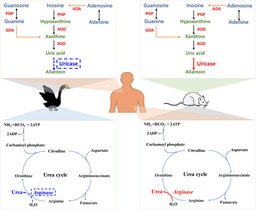Exploring sensitivity and initiative in a mother-baby dyad with Video Intervention Therapy (VIT): a case study in a high-risk population
Published in Behavioural Sciences & Psychology

Movement, Mind & Meaning is a professional and research group that has been meeting for the past three years to explore transformative paradigms in psychotherapy and psychological interventions. Our work is grounded in intersubjective approaches informed by:
-
Developmental and evolutionary psychology/neuroscience (Daniel Stern, Colwyn Trevarthen, Adolfo Perinat, Michael Tomasello, Ruth Feldman),
-
Interpersonal neurobiology (Dan Siegel, Allan Schore, Jaak Panksepp), and
-
Attachment theory (John Bowlby, Mary Ainsworth, Allan Sroufe, Peter Fonagy, Jeremy Holmes, Mario Marrone, Arturo Ezquerro).
The group includes interdisciplinary experts such as Argentinian psychiatrist Dr. Eliana Montuori, Mexican-French psychotherapist Christian Herreman, Spanish psychologist Dr. María Julia Sánchez, and myself, Marc Pérez Burriel.
Two core concepts guiding our understanding of psychotherapeutic change are:
-
Agency (loosely defined as an individual’s capacity to act within a given environment), and
-
Intentionality (the ability to act deliberately, guided by goal-directed mental representations).
These dimensions are viewed as two sides of the same coin, shaping therapeutic processes.
Pilot Study: Maternal Vulnerability and Interaction Analysis
This pilot study examines a case of a highly vulnerable mother through:
-
Video Intervention Therapy (VIT; Dr. George Downing) to analyze and enhance interactive patterns, and
-
Coding Interactive Behavior (CIB; Dr. Ruth Feldman) for systematic behavioral assessment.
Preliminary findings highlight the importance of agency and intentionality as focal points for observation and intervention. The study also explores the feasibility of further research on:
-
Psychotherapeutic support for immigrant/forcibly displaced mothers experiencing trauma, mental health struggles, and disrupted social/family networks.
-
The role of relational interventions in mitigating psychological distress in marginalized populations.
Follow the Topic
-
Current Psychology

This is a journal for dissemination of peer-reviewed research on diverse psychological issues.
Your space to connect: The Psychedelics Hub
A new Communities’ space to connect, collaborate, and explore research on Psychotherapy, Clinical Psychology, and Neuroscience!
Continue reading announcement




Please sign in or register for FREE
If you are a registered user on Research Communities by Springer Nature, please sign in